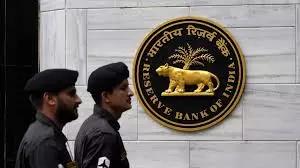
Follow WOWNEWS 24x7 on:

In a dramatic shift, Indian state-run oil refiners have halted Russian crude purchases over the past week, responding to narrowing price advantages and escalating geopolitical pressure. The move comes as US President Donald Trump threatens steep tariffs on Indian exports and the European Union tightens its grip on Russian energy flows.
Key Developments This Week:
- Indian Oil Corp, Bharat Petroleum, Hindustan Petroleum, and Mangalore Refinery have not sought Russian crude in the past seven days
- Discounts on Russian oil have narrowed to just USD 2.5–4 per barrel, down from USD 10–16 earlier this year
- Trump announced a 25 percent tariff on Indian exports starting August 1, citing continued Russian energy purchases
- EU sanctions now ban diesel imports made from Russian crude, even if refined in third countries
- Indian refiners are turning to Middle Eastern and West African grades for replacement supply
Geopolitical Pressures Intensify:
India’s oil procurement strategy is being squeezed from both ends.
- The US administration has adopted a more aggressive stance against Russian energy flows, with Trump warning of additional penalties
- The EU’s 18th sanctions package prohibits refined petroleum products derived from Russian crude, impacting India’s USD 14.3 billion export market to Europe
- Indian refiners are seeking urgent clarity from New Delhi on future Russian oil purchases
Economic Implications:
The halt in Russian oil buying could have ripple effects across India’s refining economics.
- State refiners control over 60 percent of India’s 5.2 million barrels per day refining capacity
- A sustained USD 10 per barrel increase in crude prices could inflate India’s annual import bill by USD 13–14 billion
- Rising costs may pressure margins and impact fuel pricing domestically
Shift in Procurement Strategy:
Indian refiners are now scrambling to secure alternative crude sources.
- Indian Oil Corp issued tenders for prompt delivery of Middle Eastern grades like Abu Dhabi’s Murban crude
- Bharat Petroleum and others have turned to West African varieties for September–October delivery
- These tenders are unusually early, reflecting urgency and uncertainty in supply planning
Private Players Still Engaged:
While state refiners have paused Russian purchases, private firms like Reliance Industries and Nayara Energy continue to buy.
- These companies are less exposed to geopolitical scrutiny and maintain flexibility in sourcing
- However, any further escalation could impact their operations too
Strategic Outlook:
India’s energy security is at a crossroads.
- The country imported 1.63 million barrels per day of Russian oil last year, accounting for over a third of its total crude intake
- With discounts fading and sanctions tightening, India may need to recalibrate its long-term sourcing strategy
- Analysts expect increased reliance on Middle Eastern suppliers and a potential uptick in domestic refining costs
Conclusion:
The suspension of Russian oil purchases by Indian state refiners marks a pivotal moment in the country’s energy diplomacy. As global tensions rise and economic stakes grow, India must navigate a complex landscape of pricing, politics, and supply chain resilience.
Source: Business Standard, Reuters, Bloomberg, The Hindu BusinessLine, July 31, 2025.





